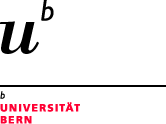Interfakultäre Koordinationsstelle für Allgemeine Ökologie (IKAÖ) |

Forschung

What problems do we start with?
A majority of the Swiss population has a high level of environmental
concern and people are convinced that "something has to be done" in order
to protect the environment. Nevertheless, environmental degradation is
slowly going on, natural resources are wasted, environmentally sound products
are not bought, and new technologies are not applied or not even developed.
How come? What should hinder individuals, enterprises, authorities from
changing their behavior? What hinders our society to approach sustainability?
Most people know that they must and should do something. However, they do not know what to do and how to do it. An important question for authorities, private organizations and institutions is, how individuals, enterprises and institutions can be stimulated to approach sustainability. Which strategy should they pursue? Which instruments should be used and which measures are to be taken? Is it useful to finance an information campaign, to introduce user charges, to construct neighbourhood-streets, to subsidize ecologically sound technologies?
Objectives of our research
Our objective is to contribute to a sustainable development of Swiss communes. We do not want to make prescriptions for communes. We want to provide knowledge about different effects of different measures especially for actors in communes (such as individuals, local authorities, enterprises, citizens' organizations, schools) which enables communes to adopt the measures which will most probably help them to reach their goals. At the same time, the know-how of optimal use and combination of measures for a sustainable development, a kind of a "Strategy Kit" is to be provided.
Thus, the objectives of the project are
- to conceive, analyze, evaluate, and optimize, in a transdisciplinary
process, the interlinkages of strategies, measures, and instruments
aimed at enlarging the margin of action or at overcoming obstacles on
the different levels of human action;
- to estimate the ecological effectiveness in selected fields;
- to improve the scientific knowledge base required for the conception
of particular instruments;
- to test empirically the application of interventions and instruments
and their effects in selected Swiss communes with their private and
public actors.
Questions under investigation
In correspondence with the objectives of the project the following questions are asked:
- Which individual, socio-cultural, economic, political, and legal
obstacles and op-portunities exist for private and public actors of
communes in Switzerland to contribute to sustainable development?
- How can the obstacles identified be overcome?
- How appropriate and how effective are particular instruments and
measures?
- How do different measures and instruments interact, and how can this
linkage be optimized?
Co-operation with communes
Most of our research is done in communes, and they will be the main addressees of the research results. Close co-operation with some selected communes is very important for our work. The communes with which we cooperate closely and which match the needs of all sub-projects are called 'core communes' (Kerngemeinden), because they represent the core of our research. The core communes are Ittigen and Münsingen, both of them are situated in the canton of Berne.
All research projects are also involved with other communes beside the core communes, which wil allow to compare the data gathered.
Project leader and management of the integrated project (organigram)
The project leader of the IP (Prof. Ruth Kaufmann-Hayoz) is responsible for the process of integration within the IP and for the diffusion of the objectives and the results thereof to the public. The management of the IP (lic. phil. hist. Antonietta Di Giulio; Fürsprecher Rico Defila) supports the IP-project leader. Beside the operational management of the IP, aspects of conception and realization of measures as well as instruments for supporting consensus-building, integration and diffusion are vital.
